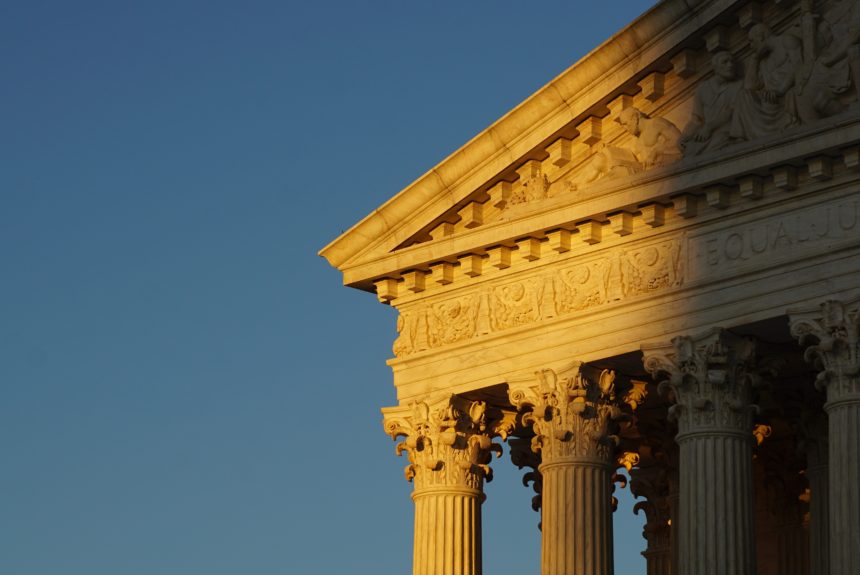By John Hart
As expected, the United States Senate confirmed Judge Amy Coney Barrett to the United States Supreme Court Monday night by a vote of 52 to 48.
Progressive complaints about Barrett focused mostly on process and charges of hypocrisy. Senate Majority Leader Mitch McConnell refused to hold hearings on President Obama’s nominee, Merrick Garland, in 2016, during the last year of Obama’s term. If Senate Republicans wanted to be consistent, this argument went, they should have waited until after the election.
McConnell’s stated reasons were inconsistent, but his real reason and justification was not. Senate Republicans had a majority in 2016. The Constitutional gives them the authority to not advance a judge, and they were willing to face the electoral consequences of keeping the seat vacant. President Trump nominated and Senate Republicans confirmed Barrett for the same reason. They had the authority under the Constitution to do so. Presidential terms are four years, not three years and nine months. And we will know soon enough if their decision affected the election.
On the substance, progressives are wrong to fear that Barrett will be bad on either the law or science.
On the law, Charles Hernick, the Vice President of Policy and Advocacy at Citizens for Responsible Energy Solutions (CRES), makes a persuasive case at RealClearEnergy. Hernick writes, “A more conservative Court will assure that federal climate action is firmly rooted in laws crafted by Congress. It also will force climate activists to choose a path to tackle climate action based on well-established federal and state jurisdictions … Respecting states’ rights is not code for climate inaction; it clearly defines a path for policymaking success.”
On the science, Senator Kamala Harris was also not only wrong, but contemptuous, to imply Comey would be a climate denier.
In an important exchange, Harris began by asking Barrett if she would “defer to scientists and those with expertise in the relevant issues before rending a judgement?”
Barrett plainly said she would “defer to agency fact finding and to agency regulations when they’re supported by substantial evidence.”
That comment alone should have been reassuring. Barrett would defer to evidence and science and not use any personal bias to ignore evidence. Yet, Harris didn’t want to take yes for an answer and pressed on.
Harris asked Barrett if she believed COVID-19 was contagious and whether smoking causes cancer. Barrett, of course, answered yes.
Harris then asked, “And do you believe that climate change is happening and it’s threatening the air we breathe and the water we drink?”
At this point, it would have been indecorous but fair for Barrett, who was criticized for her faith, to respond, “The climate dogma lives loudly in you Senator.”
Instead, Barrett said, “Senator again, I was wondering where you were going with that. You have asked me a series of questions that are completely uncontroversial, like whether COVID-19 is infectious, whether smoking causes cancer, and then trying to analogize that to eliciting an opinion from me that is on a very contentious matter of public debate. And I will not do that. It will not express a view on a matter of public policy, especially one that is politically controversial because that’s inconsistent with the judicial role, as I have explained.”
Harris responded, “Thank you. Thank you, Judge Barrett. And you’ve made your point clear that you believe that’s a debatable point.”
Harris’ word choice put herself, not Barrett, on the wrong side of science. True science is always open to revision and correction. The moment science ceases to be debatable it ceases to be science and becomes dogma.
As I’ve argued before, contempt is the Co2 of our political atmosphere. Accusing people who disagree on policy of being “deniers” is divisive and makes consensus more difficult to achieve. As U.S. Senator Mitt Romney (R-UT) argued in his speech defending Barrett, contempt also erodes confidence in our institutions.
“A democratic republic is highly dependent upon the confidence of its people in the institutions that lie at its foundation,” Romney said. “These include churches, schools, governments at all levels, the press, corporations, markets, and most relevant today, the justice system and the courts. Absent public confidence in these institutions, a democratic republic will not thrive or perhaps endure.”
Romney continued:
“Now, more than at any other time during my lifetime, it is essential that the Supreme Court retain the trust of the nation. It may be one of the very few, if not the only, of the institutions in which the great majority of Americans have confidence.”
“That is why Judge Barrett’s integrity, wisdom, and commitment to the rule of law is so important: she will be critical to the preservation of the public’s perception of the legitimacy of the Court.”
In future rulings, these characteristics – and Barrett’s intellectual honesty – will give good laws legitimacy.
The views and opinions expressed are those of the author’s and do not necessarily reflect the official policy or position of C3.
